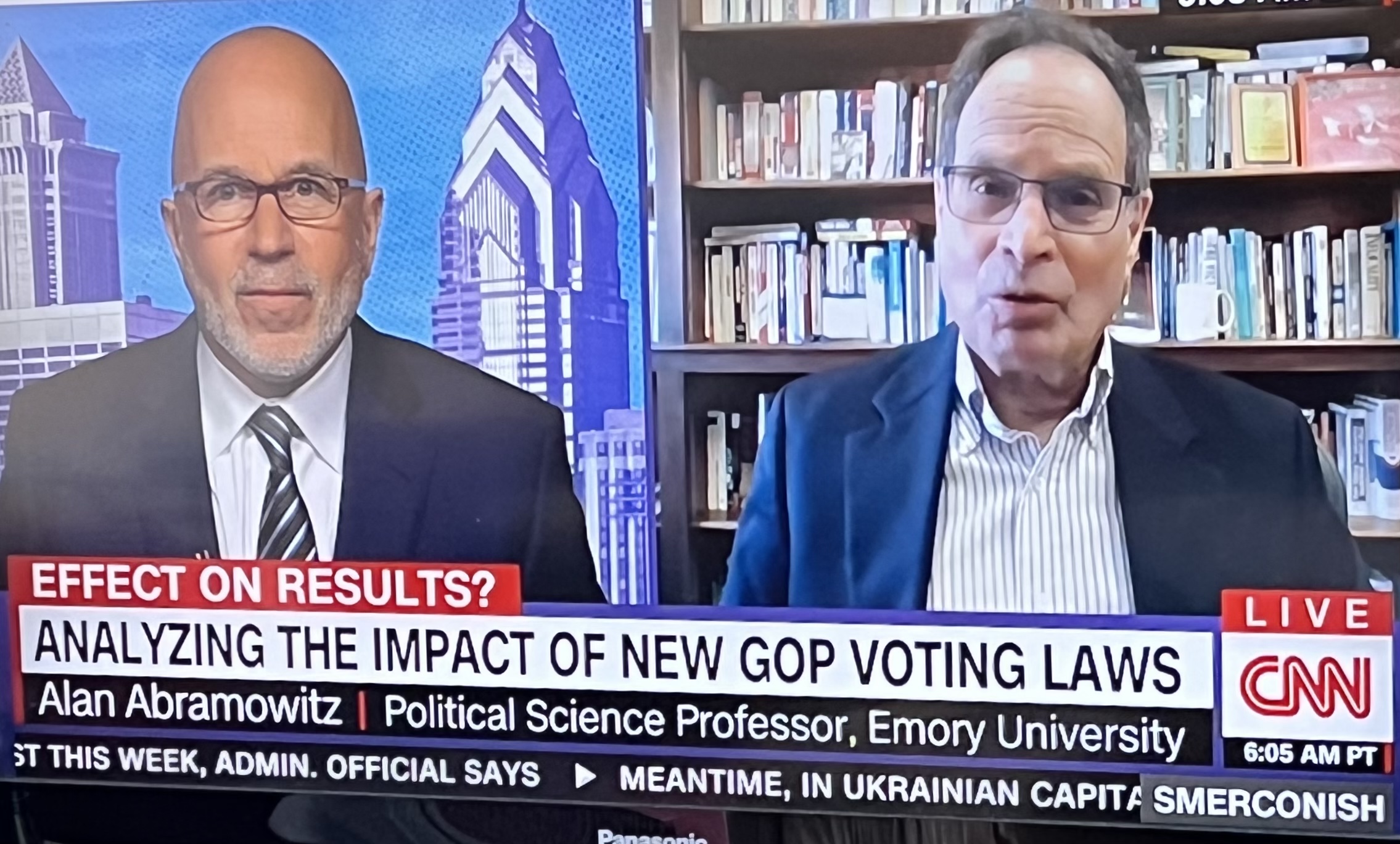“Voter suppression”? Not so much, research shows
The long-held, but unchallenged, assumption that “voter suppression” changes the outcome of elections, has now been challenged — and refuted.
The analysis comes from respected Emory University prof Alan Abramowitz, and his work has gotten far less attention than it should. And when it is published, his work is usually under the headline of “voter suppression.”

From the Left, any attempt to tighten voter security is seen as “suppression,” as if voters always had the “right” to vote a month before Election Day, to vote 24/7, to vote by mail, to dump ballots in drop boxes, and to not have to provide ID.
On the subject of ID, looking at 2016 and 2020 turnout, Abramowitz found an increase of 7% where ID was not required. And where ID was required? An increase of an almost identical 7%. Turnout, he concludes, is a function of voter passion more than anything else.
Measures to tighten the election process usually come from Republicans, and surely there is something political in their motives. And when Democrats fight any attempt at reform, that is also political.
As has been noted before, Democrats claim that Georgia’s new voting laws are “repressive,” despite record turnout and that Delaware’s laws are more restrictive than Georgia’s. That’s true for some other “blue” states, such as New York, Rhode Island and Connecticut.
Michael Smerconish interviewed the professor on his CNN show, where he said the research was “counter-intuitive.”
Meaning, Smerconish’s assumption was that the new laws negatively affect turnout or result. That belief is on him. The research shows a minor effect on turnout and none in outcome.
Well, the research affirms my intuition. And I’m glad to see it is supported by science, and that Smerconish was honest enough to air findings contrary to his beliefs. That makes him trustworthy.
The professor said that the expanded access to the polls, while liked by voters, had remarkably little effect on turnout, something I had detailed myself in a piece that reported that with the exception of 2020, turnout has rarely been out of the 50s for the past 90 years, regardless of all the expanded "access" to the polls.
Far more serious, says Abramowitz, are new rules about who counts and validates the votes, with Trumpsters being appointed or elected to supervisory roles.
Again, I agree with the professor. That is the danger that must be confronted.



